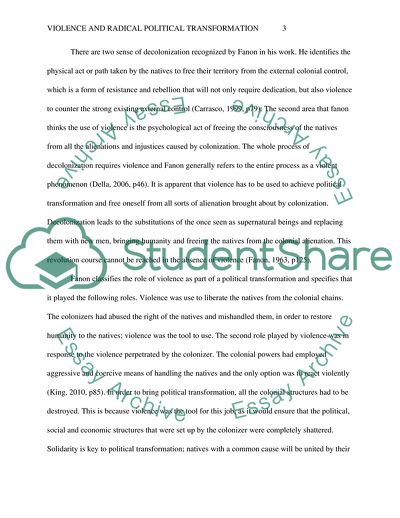Cite this document
(Violence and Radical Political Transformation Research Paper, n.d.)
Violence and Radical Political Transformation Research Paper. https://studentshare.org/politics/1819514-is-violence-a-necessary-part-of-any-radical-political-transformation-discuss-with-reference-to-sorel-and-fanon
Violence and Radical Political Transformation Research Paper. https://studentshare.org/politics/1819514-is-violence-a-necessary-part-of-any-radical-political-transformation-discuss-with-reference-to-sorel-and-fanon
(Violence and Radical Political Transformation Research Paper)
Violence and Radical Political Transformation Research Paper. https://studentshare.org/politics/1819514-is-violence-a-necessary-part-of-any-radical-political-transformation-discuss-with-reference-to-sorel-and-fanon.
Violence and Radical Political Transformation Research Paper. https://studentshare.org/politics/1819514-is-violence-a-necessary-part-of-any-radical-political-transformation-discuss-with-reference-to-sorel-and-fanon.
“Violence and Radical Political Transformation Research Paper”. https://studentshare.org/politics/1819514-is-violence-a-necessary-part-of-any-radical-political-transformation-discuss-with-reference-to-sorel-and-fanon.


